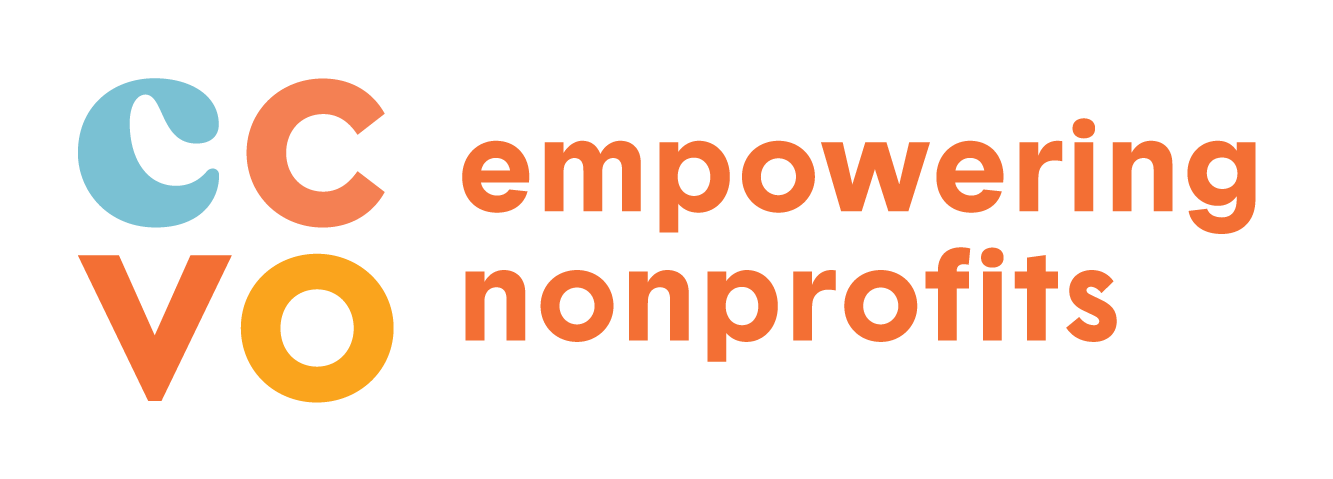Social Innovation and Social Finance: An Introduction for Nonprofits
By Vivian Mak, CCVO Policy Intern
Social Innovation and Social Finance: What are they?
Social innovation is the use of different strategies and ideas to address existing social and/or environmental issues. These innovations can take many forms, from community-centered planning to international labour standards to fair trade.
Social finance, a form of social innovation, is the use of investments (loans, equity finance, bonds, etc.) to further a social and/or environmental impact while also generating financial returns for investors.
What are some forms of social finance?
Social Impact Bonds: Investments into programs that will save money for the government. For example: investing in a nonprofit that runs a safe injection site will generate a financial return for the government when they save on specific emergency and overdose services. The savings are then calculated and paid out from the government to the initial investors.
Debt Financing: A form of impact investing where organizations can borrow money that they otherwise may not have access to, at a negotiated interest rate and return timeline. They can then use that money to finance a program or initiative. For Alberta nonprofits that are interested in pursuing debt-financing, The Calgary Foundation has a Community Impact Investment Program and the Edmonton Community Foundation has a Social Enterprise Fund.
Additionally, the UBC Sauder School of Business has a Centre for Social Innovation & Impact Investing that provides a comprehensive overview of how social innovation works and examples of initiatives. To view Canadian case studies of examples that have helped solve social issues, click here.
How is the Government of Canada making social innovation and social finance a priority?
The Government of Canada recognizes that they will not be able to reach the UN’s Sustainable Development Goals by 2030 without doing things differently. Therefore, the Government of Canada has committed to:
Contributing $755 million over 10 years to a Social Finance Fund, which will give charitable, nonprofit, and social purpose organizations new options for financing their causes and connect them to new investors.
Funding $50 million into an Investment and Readiness Stream, which would help expand the capacity and knowledge of charitable, nonprofits, and social purpose organizations to be able to pursue and participate in social innovation and finance.
Creating an Advisory Committee on the Charitable Sector for the Canada Revenue Agency to gain insight and understanding into what the charitable sector needs and where they can enhance their services and support.
What has the Government of Canada done so far?
A Co-Creation Steering Group made up of 17 representatives from a variety of charitable and nonprofit sector organizations conducted over 60 engagement sessions and received feedback from across the country to develop a national Social Innovation and Social Finance Strategy.
This strategy outlines six interconnected areas for action:
Skills and Capacity (for social purpose organizations, federally funded)
Funding and Capital (social finance investment fund, better grants and contributions)
Market Access (using the Government of Canada’s purchasing power to generate demand for social enterprise products)
Policy and Regulatory Environment (Income Tax Act that recognizes the challenges charities face)
Evidence and Knowledge Sharing (social innovation data development plan)
Awareness and Mobilization (collaborative spaces, building awareness)
The Steering Group also provided 12 recommendations for developing and expanding the strategy across Canada:
Anchor commitment and long-term policy action toward social innovation and social finance in Canada through legislation.
Establish and fund a permanent multi-sectoral Social Innovation Council to advise the federal government.
Create a permanent Office for Social Innovation.
Improve social purpose organizations’ access to federal innovation, business development, and skills training programs.
Establish a multi-departmental Social Innovation Ecosystem Program.
Create a Social Finance Fund.
Ensure federal funding practices support and enable social innovation.
Incorporate social procurement guidelines, tools, and training opportunities into the government’s focus on a cohesive sustainable procurement plan.
Address the legal and regulatory issues impeding charities and non-profits from engaging in social innovation, social finance, and social enterprise.
Initiate a series of controlled regulatory experiments, or "sandboxes," to explore and experiment with new regulatory models.
Establish a Social Innovation Evidence Development and Knowledge Sharing Initiative.
Coordinate a national social innovation and social finance awareness campaign that delivers results for Canadians.
How can nonprofits ready themselves for social innovation and social finance?
Social innovation and social finance can offer a new approach to solving the same problems that nonprofits have been facing. This is a critical time for nonprofits to learn about and develop new skills relating to social innovation and social finance so that if the strategy is fully implemented, they can be ready to take advantage of new opportunities and funding initiatives. Here are a few resources to help nonprofits prepare:
The Social Enterprise Institute offers an Investment Readiness Certificate Course that helps nonprofits:
• Decide whether investment is right for their organization
• Find out about funding options
• Learn the process for raising capital
• Present an effective case for funding
• Negotiate confidently with investors
The Social Enterprise Institute will also be offering Investment Readiness live training that will pair online content with a day of in-person training in several Canadian cities.
If the Social Innovation and Social Finance Strategy is implemented, there will financial support for nonprofits to pursue learning and training opportunities through the Social Enterprise Ecosystem Project.
Nonprofits can apply to be a member of the Social Innovation Advisory Council who will help guide, implement, and support the Social Innovation and Social Finance Strategy. Click here to find the application and more information. The deadline is September 2, 2019.
Where can you find out more?
Visit sisfs.ca to find out more about this Government of Canada initiative and view the full strategy and recommendations.

